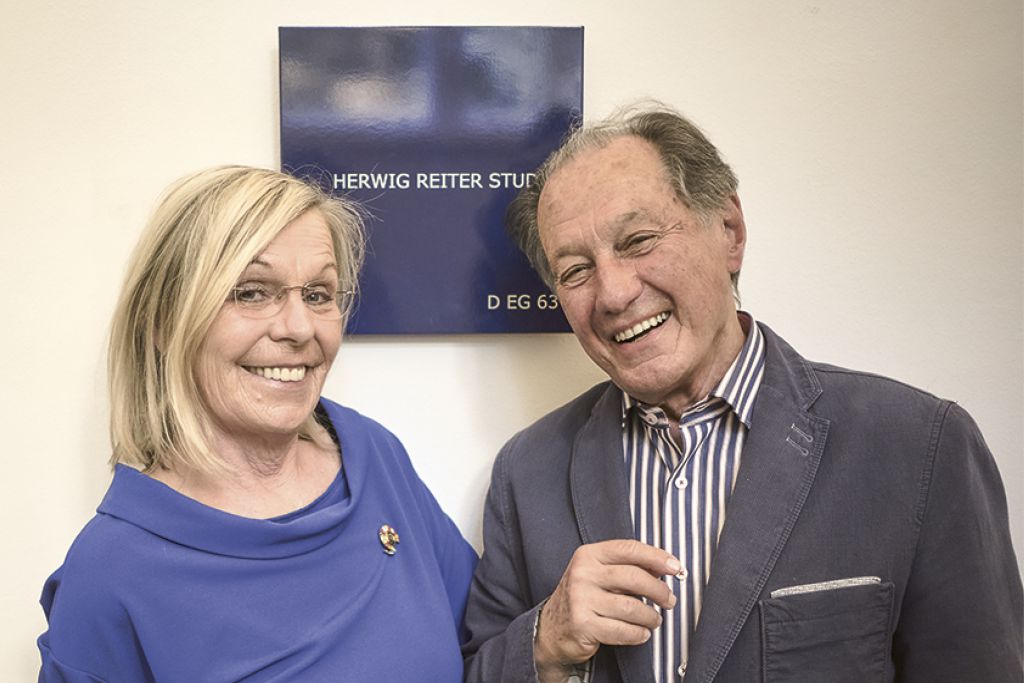Er hat den Chor- und Ensembleleitungsbereich an der mdw jahrzehntelang mitgestaltet und kannte die heimische Chorlandschaft wie kaum ein anderer von innen heraus, egal ob als Dirigent, Stimmbildner, Chorleiter, Aufnahmeleiter, Komponist, Buchautor, Juror oder leidenschaftlicher Pädagoge – sein Wirken war stets am Puls der Zeit und von einer Strahlkraft, die weit über die mdw und Österreich hinausging und allerorts geschätzt wurde:
Herwig Reiter – ein musikalisches Universum – feierte Ende Juni seinen 80. Geburtstag.
An der mdw wirkte er seit 1975 und gründete u. a. den Kammerchor (heute Webern Kammerchor), 1985 wurde er zum Professor für Dirigieren berufen und wirkte bis 2002 am Anton Bruckner Institut, dem Institut für Chor- und Ensembleleitung an der mdw.

Ein Kreis ehemaliger Studierender und Kolleg_innen sowie vokale und instrumentale Ensembles des Instituts gratulierten deshalb Anfang Juni im Rahmen eines Festakts im Joseph Haydn-Saal mit Musik des Jubilars, dessen musikalische „Weltanschauung“ am besten in den von ihm vor einigen Jahren formulierten künstlerischen Grundsätzen zum Ausdruck kommt:
… über die Beziehung zwischen Musik und Gesellschaft:
„Ich liebe eine Polyphonie, die die Gegensätze nebeneinander bestehen lässt. Eine solche Musik ist – politisch betrachtet – das Abbild einer Gesellschaft, die so frei ist, dass sie das subjektiv Andere jedes einzelnen Individuums erträgt und fördert.“
… über neue Musik im Allgemeinen:
„Die besondere Aufgabe unserer Zeit sehe ich darin, die kompositorischen Möglichkeiten und Freiheiten auf vielerlei Arten zu nutzen, um im Sinne der Demokratie möglichst viele Menschen für möglichst gute, das heißt spannende, ausdrucksvolle, lebendige und humane Musik zu gewinnen.“
Im Rahmen der Feierstunde verkündete Rektorin Ulrike Sych als Zeichen der Wertschätzung des Hauses die Umbenennung des Raums DEG 63 am Anton-von-Webern-Platz in Herwig Reiter Studio – zur sichtbaren Freude des Jubilars und seiner Frau Elisabeth.

